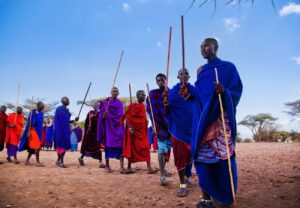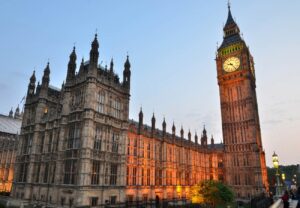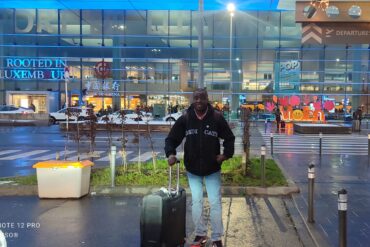US is joining a growing list of countries, including Ireland, India, Australia, the United Kingdom, France, New Zealand, and the Dominican Republic, in taking a hard look at birth tourism and the principles of birthright citizenship. With a controversial executive order, Donald Trump aims to restrict citizenship for certain children born on U.S. soil, sparking heated debates over constitutional rights and immigration policy. This move mirrors shifts in policies worldwide, as nations reevaluate how citizenship is granted in an increasingly globalized world.
Trump’s Executive Order on Birthright Citizenship: A Controversial Move
On Monday, Donald Trump signed an executive order aimed at ending birthright citizenship for certain children born in the United States. This bold move directly challenges a deeply rooted American principle: the right to citizenship by birth, regardless of a child’s parentage.
Trump justified this decision, in part, by pointing to the rise in the undocumented population. By July 2023, the total undocumented population in the U.S. had reached about 11.7 million, an increase of roughly 800,000 compared to the previous year. While this is still below the 2008 peak of 12 million, the recent growth highlights a renewed focus on immigration issues.
Critics argue that this policy could create a permanent underclass, disproportionately impacting communities of color. Civil rights groups are preparing for legal battles, claiming the order contradicts the Constitution and over a century of legal precedent.
Let’s break down what birthright citizenship is and explore the implications of Trump’s controversial executive order.
What Is Birthright Citizenship?
Birthright citizenship is the principle of jus soli, or “right of the soil.” It guarantees citizenship to almost everyone born on U.S. soil, regardless of their parents’ immigration status.
The Legal Foundation of Birthright Citizenship
The idea of jus soli comes from English common law, which recognized anyone born within the territory as a subject. In the U.S., this principle is embedded in the 14th Amendment, ratified in 1868 to correct injustices following the Supreme Court’s infamous 1857 Dred Scott decision, which denied citizenship to Black descendants of enslaved people.
The Citizenship Clause of the 14th Amendment clearly states:
“All persons born or naturalized in the United States, and subject to the jurisdiction thereof, are citizens of the United States and of the State wherein they reside.”
This clause forms the bedrock of modern birthright citizenship laws in the U.S.
Legal Precedents Supporting Children of Immigrants
In 1898, the Supreme Court reinforced this principle in United States v. Wong Kim Ark. The Court ruled that Wong Kim Ark, born in San Francisco to Chinese immigrant parents, was a U.S. citizen despite his parents’ status. This decision remains a cornerstone of birthright citizenship today.

Rare Exceptions to Birthright Citizenship
While birthright citizenship covers most people born in the U.S., there are a few exceptions:
- Indigenous people were excluded until a 1924 law granted them citizenship.
- People born in American Samoa, a U.S. territory, do not automatically receive citizenship unless Congress passes specific legislation.
- Children of foreign diplomats and hostile occupying forces are also excluded.
How Other Countries Handle Birthright Citizenship
Trump’s claim that the U.S. is unique in granting birthright citizenship isn’t entirely accurate. Many countries in the Western Hemisphere, like Canada and Mexico, follow similar principles. However, several countries have modified their citizenship laws to discourage birth tourism or tighten eligibility:
- Ireland: In 2005, Ireland amended its constitution to require that at least one parent be an Irish citizen or legal resident for the child to gain citizenship at birth.
- New Zealand: In 2006, New Zealand changed its laws so that children born there only gain citizenship if at least one parent is a citizen or permanent resident.
- Australia: Children born in Australia must have at least one parent who is a citizen or permanent resident to receive citizenship.
- United Kingdom: The UK ended unconditional birthright citizenship in 1983, requiring at least one parent to be a citizen or settled resident.
- France: In 1993, France revised its laws, allowing children born to foreign parents to acquire citizenship later under certain conditions.
- Dominican Republic: In 2013, the Dominican Republic removed birthright citizenship for children born to undocumented foreign parents.
- India: Between 1950 and 1987, anyone born in India automatically gained citizenship. Since 2004, children only receive Indian citizenship at birth if both parents are Indian citizens or one is a citizen and the other isn’t an illegal migrant.
What Does Trump’s Executive Order Do?
Trump’s executive order aims to deny citizenship to children born in the U.S. if neither parent is a lawful permanent resident or citizen. This move targets children of both undocumented immigrants and those legally in the U.S. on temporary visas. The order also instructs federal agencies not to issue citizenship documentation for these children.
Can Trump Actually End Birthright Citizenship?
Experts overwhelmingly agree that birthright citizenship cannot be ended through an executive order. The 14th Amendment guarantees this right, and legal scholars insist that neither executive action nor legislation can override the Constitution.
The Supreme Court’s Wong Kim Ark decision is a powerful precedent, and overturning it would require the Court to radically reinterpret the 14th Amendment—an unlikely scenario.
Amending the Constitution is another route, but it would demand overwhelming political support, which is nearly impossible given how divisive this issue is.
Other Strategies to Limit Birthright Citizenship
Even if the executive order fails, the administration could pursue other tactics, such as tightening visa restrictions for pregnant travelers to prevent births in the U.S.
A Heated Debate Over America’s Future
Trump’s attempt to reshape birthright citizenship raises serious constitutional questions and sets the stage for intense legal and political battles. It’s a move that challenges long-standing principles, forcing the nation to grapple with the future of immigration and identity in America.
Our Commitment to You
At El Accesso Travels and Tours Limited, we are committed to making your travel experience exceptional. Our team is passionate about travel and dedicated to providing you with the highest level of service. We understand the importance of creating memories that last a lifetime, and we strive to exceed your expectations at every turn.
Get Start Today!
Are you ready to embark on a unique adventure tailored just for you? Contact us today to start planning your customized tour with El Accesso Travels and Tours Limited!
- Email: info@elaccessotravels.com, bookings@elaccessotravels.com
- Phone: +2348165979826 +2349012345888
















